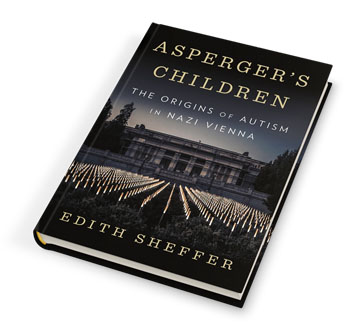Chris Crebbin is a training officer and NPAA Coordinator for West Yorkshire Police – in this blog he talks about the rapidly-evolving lexicon of autism and neurodiversity, which can be confusing for a newcomer
Today, I want to talk about language. There are a lot of terms in use in the autism community and it can be confusing to try and understand them all. It also doesn’t help that there is no consensus around what terms we should be using, and which terms we shouldn’t. So let’s have a look at a few of them.
When a person receives their diagnosis, they will be classed as having an Autism Spectrum Disorder. Synonymous terms are Autism Spectrum Diagnosis, or Autism Spectrum Condition. In real terms, the three terms all mean the same thing, but with different emphasis. ‘Disorder’ is probably the term which will be on your medical file. Many people think that this is too negative – it’s a difference, not something wrong – so will be purely technical and use ‘Diagnosis’, or more broad-ranging with ‘Condition’. These are abbreviated to ASD or ASC respectively.
When talking about the individual, are they an autistic person, or a person with autism? This is a discussion which occurs in many areas of diversity – person first vs identity first. Like in so many contexts, the right answer is: be guided by the individual. When I’m delivering awareness sessions, I try to use both reasonably equally, because the reality is there is no single accepted ‘right’ answer. Another term which you might hear used is ‘autist’, which simply refers to the person.
When discussing autism, and people with autism, you will often hear the term ‘neurotypical’. This simply means ‘normal’, or not autistic. Note the quotes on the word ‘normal’. When I deliver awareness training, I always stress the quotes, and deploy the old ‘air quotes’ (making little quote signs with my fingers), to emphasise that there really is no such thing as ‘normal’. For reference, I really dislike air quotes, but I struggle to make this point without them.
Autism is just one strand of neurodiversity, which also includes other conditions such as ADHD, dyslexia, dyspraxia, and dyscalculia. We group these together, because they are all categorised by a difference in the wiring of the mind. It’s not that the mind is faulty – it’s not – it’s just wired a bit differently to the neurotypical mind.
Then we come on to Asperger Syndrome, or AS. This is a subset of autism, that is, it’s a specific diagnosis, but falls under the general heading of an autism spectrum condition. A person with Asperger Syndrome may refer to themselves as an ‘Aspie’. Or they may really hate the term. It’s another of those divisive things and, as always, my advice would be to be guided by the individual.
There are a couple of things you need to know about AS. Firstly, it’s not being diagnosed much these days. Depending on which NHS trust you go to, they could be using one of two manuals: The Diagnostic and Statistical Manual of Mental Disorders, 5th Edition (DSM-5), or the World Health Organisation’ International Classification of Diseases (ICD-10). DSM-5 makes no reference to Asperger, having removed it in the current version. Instead, the patient will simply receive a diagnosis of an ‘autism spectrum disorder’. My understanding is that ICD-10 still contains it, but when ICD-11 is released it is likely to be removed. The reason for this removal is for clinical reasons which are beyond the scope of my little blog.

The other thing you need to know about Asperger Syndrome is around the name itself. It’s named after Dr Hans Asperger, who pioneered work in the area. The problem lies when you look at the man himself. In 2018, Edith Sheffer completed her research into him and published her results in a book called “Asperger’s Children: The Origins of Autism in Nazi Vienna”. It turns out that Asperger might not have been such a nice chap. The book details the complicity of Hans Asperger in the murder of autistic children by the Nazis. Understandably, those people for whom his name is part of their identity are wondering if they should be looking for something else. Some people I’ve spoken shrug it off and take the view that he was a figure from 70 years ago and aren’t overly bothered. Others, understandably, are actively looking for a replacement term. I’ve just checked the National Autistic Society web site, and their position is still: “We are listening closely to the response to this news so we can continue to make sure the language we use to describe autism reflects the preferences of autistic people and their families.”
So at the end of this all, what language should you be using? I’d say as long as you use some common sense and are sensitive to the preferences of the individual or group you are dealing with, you can make your own mind up.
One little snippet to finish. You’ll have noticed that I’ve shied away from telling you words that you must or mustn’t use. I will include one though: please don’t use the term ‘suffer’ (‘suffering’, ‘sufferer’, etc.) when referring to those on the autism spectrum. An awful lot of people within the autistic community will get very upset with this. I’ve found this meme on social media which attributes a quote to Anne Hegerty (The Chase, I’m A Celebrity). I don’t know whether she actually said it, but it rings true: “People say ‘you suffer from Asperger’s’. No: I have Asperger’s, I suffer from idiots.” ∎
This blog was originally published on the College of Policing members’ website – it is reproduced here with kind permission of the author
